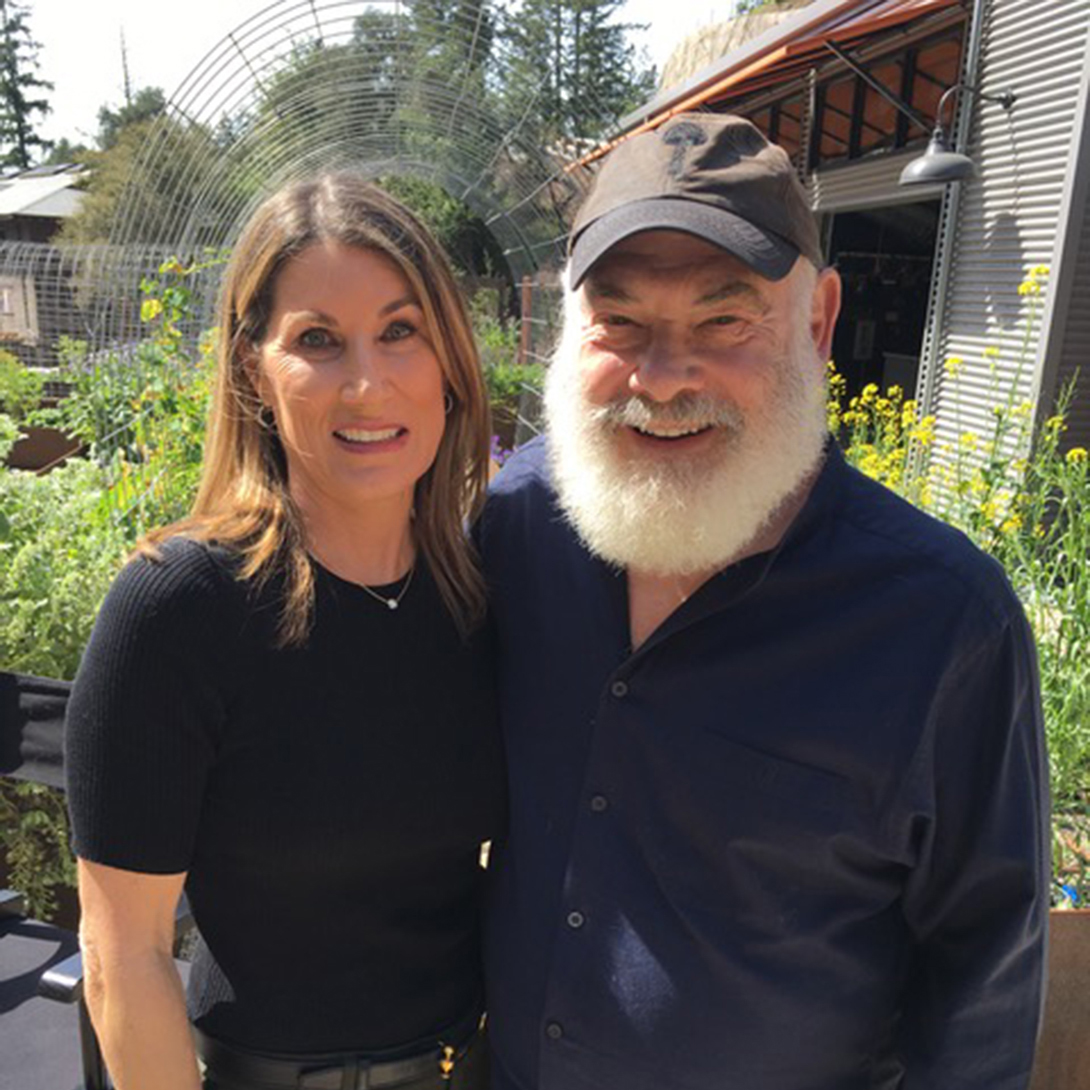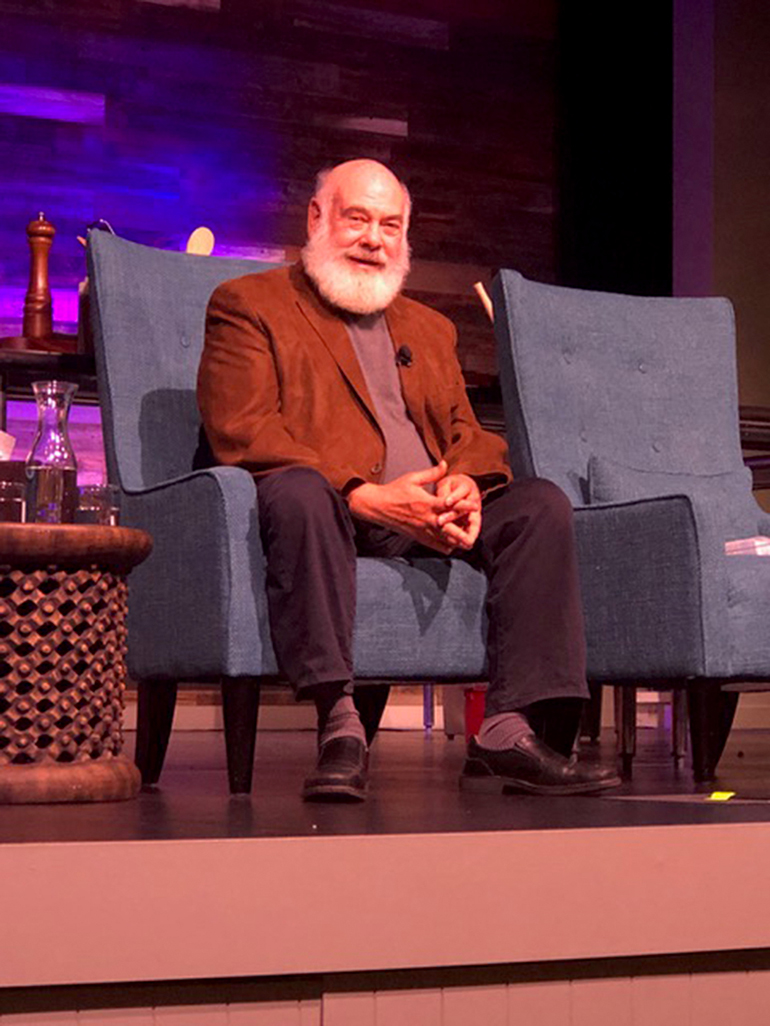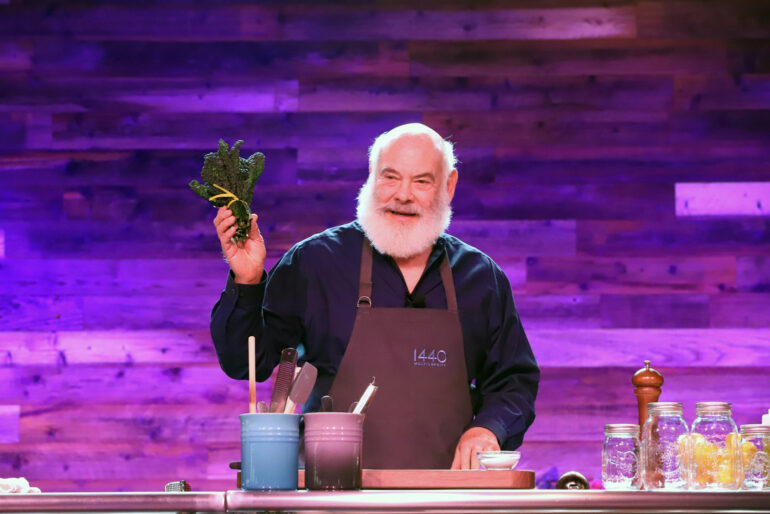Nothing is more important than our health, and with lifestyle-related diseases on the rise, perhaps it’s time to take back control of our wellbeing. Recently, Dr. Andrew Weil, the founding father of Integrative Medicine, was the keynote speaker at a weekend program at 1440 Multiversity in Scotts Valley, CA.
The doctor is a world-renowned leader and pioneer in the field of Integrative Medicine. He has spent decades practicing natural and preventive medicine and is the founder and director of the Andrew Weil Center for Integrative Medicine at the University of Arizona in Tucson. He also serves as a Clinical Professor of Medicine and Professor of Public Health as well as the Lovell-Jones Professor of Integrative Medicine, and is a best-selling author of 15 books on healthy living.
Dr. Weil also serves as the editorial director of drweil.com, the leading online resource for healthy living based on the philosophy of integrative medicine, and pens the popular Dr. Andrew Weil’s Self Healing monthly newsletter and a regular column in Prevention magazine. He is the founder and Chairman of the Weil Foundation, the founder and co-Chairman of Healthy Lifestyle Brands, and the founder and partner of the growing group of True Food Kitchen restaurants.
Integrative Medicine brings together standard medical knowledge and more natural approaches as a way to help heal some of the most troubling chronic diseases that are plaguing modern health. We sat down with Dr. Weil to get a better understanding of his work:
1. What is the definition of Integrative Medicine?
It’s the intelligent combination of standard medicine and natural and preventative medicine with a high emphasis on lifestyle. We are willing to look around the world and bring into the mainstream treatments that we feel are not harmful, and show reasonable evidence of efficacy.
2. What are the strengths and weaknesses of standard medicine?
Standard medicine is very good at dealing with crises. It’s becoming a specialty focused on critical, fast-moving, and severe illness. Standard medicine is good at preventing disease – for example, through immunization and attention to public health.
It is not good, however, at managing the chronic diseases that are now epidemic in our society. Hypertension and type 2 diabetes are just two examples.
There are glaring omissions in medical education, such as nutrition, information about botanical medicine, the strengths and weaknesses of alternative medical systems, and how the mind affects the body.
Additionally, consumers need to be aware of the dangers of medications and know about non-pharmacological methods of managing common disease conditions.

3. What are the alternatives to standard medicine that you recommend?
I use diet as a primary therapeutic strategy. I make judicious use of dietary supplements, herbal and other natural remedies, and I’m a great believer in mind-body approaches. Frequently, I refer people to hypnosis, biofeedback, guided imagery, and visualization therapy. I also selectively use elements of Chinese and Ayurvedic medicine. For example, I’ve seen Chinese medicine successfully treat inflammatory bowel disease, and Ayurveda does very well with asthma and lifestyle-related diseases. And I’m a big fan of Osteopathic manipulative techniques.
4. You have indicated that there is a health crisis in America. In your view, what is the problem?
There is both a health crisis and a health care crisis! Health has deteriorated – we have epidemics of lifestyle-related diseases that we seem unable to manage. And we don’t have a health care system. We have a disease management system that’s functioning very imperfectly and getting worse by the day. It’s possible the whole system is going to crash. We are spending approximately 18% of our GDP on healthcare, and yet we have worse health outcomes than any other developed country. The World Health Organization rates the U.S. 38th, which is on par with Serbia. That takes account of infant mortality, longevity, rates of chronic disease. There is something really wrong with that picture: we’re spending more and more on our health and have less and less to show for it.
The challenge is to turn this whole enterprise of disease management back in the direction of health promotion and disease prevention. We need to break the dependence of conventional medicine on expensive technology, including pharmaceuticals. The obstacle is that most doctors aren’t trained in other methods of managing disease, such as lifestyle change, mind/body interventions, and natural remedies.
There are vested interests that don’t want things to change either. But, I think time is on our side. The incidence of lifestyle-related diseases is only going to increase, as will our health care costs. I believe integrative medicine is the way of the future. Its great promise is that it can produce better health outcomes at a lower price. I think that one day, we will be able to drop the word “integrative.” It will just be good medicine.
5. You mentioned diet as a primary therapeutic strategy. The CDC now recommends more fruits and vegetables, yet the federal government subsidizes commodity crops. What are your thoughts on ‘Big Food”?
People eat what’s cheap and what’s available, and we have made the unhealthiest food the cheapest and most accessible. Government subsidies are a big part of the problem. We subsidize commodity crops such as corn and soy; as a result, unhealthy ingredients like refined soybean oil and high fructose corn syrup are cheap and widely used in manufactured foods. We don’t subsidize fruits and vegetables, which many people in this country cannot afford. That needs to change.
In the meantime, people need to educate themselves. Many of the healthiest foods are not expensive. Beans, for example, are an excellent source of protein and fiber, and they cost very little. What’s most expensive in the supermarkets is animal protein, meat especially. If you reduce that in the diet and eat more vegetable protein, you can move in a healthier direction and also cut food costs.

6. What can people do to take back control of their health?
The first philosophical principle of integrative medicine is that the human organism is capable of repairing itself and maintaining health. Many people have no confidence in their body’s own ability to regulate itself and stay healthy. I feel strongly that one’s health is a personal responsibility. That means you have to get and use information about how to eat, how to be physically active, how to manage stress, and when and how to use standard medicine. All of this can be taught in k-12 education. I think doctors should model health for their patients and motivate them to take greater responsibility for their own wellbeing.
7. What is your idea of the optimal diet?
I recommend an anti-inflammatory diet that’s based on the Mediterranean diet. There’s so much scientific evidence indicating that it’s a good way to eat. I add Asian influences to it: mushrooms, green tea, and spices like turmeric and ginger. Containing inappropriate inflammation is your best shot at longevity and reduced risks of chronic disease. This isn’t a difficult way to eat. Eating should be pleasurable. (I have an anti-inflammatory pyramid that has dark chocolate on the top.)
8. You have been at the forefront of Integrative Medicine for decades. What keeps you motivated?
The positive feedback I get from both practitioners and patients and the obvious need for a new model of health care.
Watch the live version of the interview here:
When Dr. Weil is not actively guiding the Andrew Weil Center for Integrative Medicine at the University of Arizona, he is most likely at his place in Canada spending time in his garden, playing with his new puppy and writing the stories of his life. For more information, go to drweil.com.
 Allison Quistgard Scherer is a freelance writer and blogger that specializes in wellness, travel and beauty. She is a former expert consultant for Space NK Apothecary, London. She had been featured on Marin T.V.’s “Healing from the ground up” as a Board-certified skin care expert. She is a freelance writer for Marin Magazine in California and was a contributing writer for the book “Project You”. Allison is the Founder of Sprig and Glow, a blog dedicated to a healthy lifestyle.
Allison Quistgard Scherer is a freelance writer and blogger that specializes in wellness, travel and beauty. She is a former expert consultant for Space NK Apothecary, London. She had been featured on Marin T.V.’s “Healing from the ground up” as a Board-certified skin care expert. She is a freelance writer for Marin Magazine in California and was a contributing writer for the book “Project You”. Allison is the Founder of Sprig and Glow, a blog dedicated to a healthy lifestyle.

